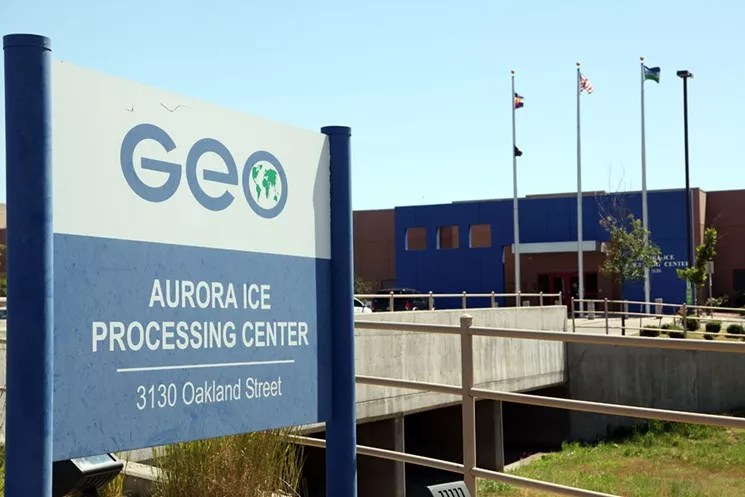
Anthony Camera

Audio By Carbonatix
Vaccinations may not be mandatory in Colorado, but at the immigration detention facility in Aurora, all current and future detainees will have the option of receiving at least one that will cover measles, mumps and rubella, known as the MMR vaccine. The new policy comes as immigration detention facilities across the country grapple with outbreaks of diseases, including the mumps.
As of now, 357 detainees at the detention facility in Aurora, which is run by private prison company GEO Group via a contract with Immigration and Customs Enforcement, are under quarantine for possible exposure to mumps, chickenpox, or a combination of both. The number of confirmed cases is in the single digits.
To respond to the mumps outbreak in particular, both the Tri-County Health Department and the Colorado Department of Public Health and Environment began working with the Aurora Contract Detention Facility in February. Along with the new vaccination policy, the two departments have also suggested best practices for identifying and tracking cases of mumps, quarantining those who may have been exposed, and testing detainees for the disease.
In February, Congressman Jason Crow attempted to visit the facility unannounced after hearing reports of disease outbreaks and poor medical care. Crow has continued to send letters to both ICE and the Department of Homeland Security, demanding more answers and transparency regarding the facility and its medical staff.
CDPHE staff say that mumps, the symptoms of which can lay dormant for weeks, is being brought to the facility by detainees from Central America.
“The vaccine that was given in Central America was just measles and rubella until the mid-’90s,” says Rachel Herlihy, the department’s communicable-disease epidemiologist, pointing out that those who received this vaccination weren’t immunized against mumps.
In the U.S., most children receive two MMR vaccinations by age five. These two doses generally protect individuals from the three diseases, though a third dose may be necessary to further bolster an immune system against mumps.
Given that some detainees may not be inoculated, both the Tri-County Health Department and CDPHE have recommended that all staff and detainees be given the option of receiving the MMR vaccination.
“We do believe that this public health intervention should stop further transmission,” Herlihy says.
Still, elected officials are wanting to know more about what’s leading to all of these infectious-disease incidents at the facility.
“Despite being faced with multiple reports of poor conditions and disease outbreaks, ICE has repeatedly blocked our office from performing basic congressional oversight, including from joining today’s media tour. This disturbing pattern raises the obvious question: why is ICE delaying oversight of this facility?” asked Crow in a recent statement.
Allison Hiltz of Aurora City Council has similar concerns. “The fact that they’re just now starting to do vaccinations shows that they’re months behind where they should be.”
This story has been updated to reflect that receiving the MMR vaccination is an option, but not a requirement for staff and detainees.